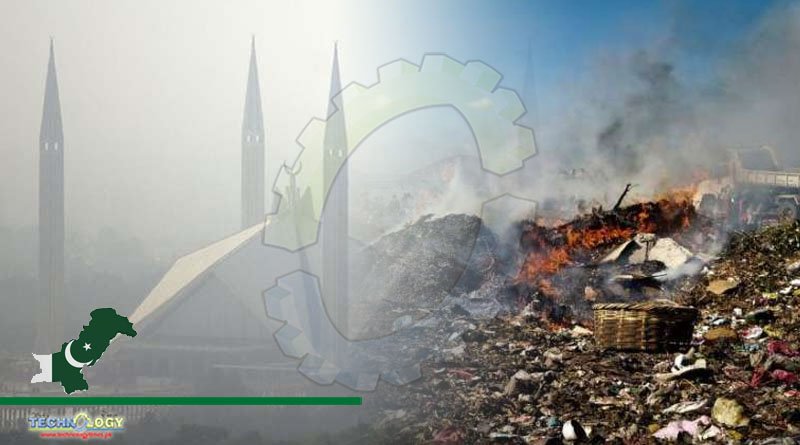According to the Pakistan Environmental Protection Agency’s daily air quality report, the ratio of air pollutants was above permissible limits, and the air quality was unhealthy.

The Federal Capital’s air quality was reported to be unhealthy on Monday due to dry weather, putting vulnerable and sensitive age groups such as children, women, and the elderly at risk of contracting respiratory ailments.
Since the start of the fall season, air pollution in the city has remained high due to prolonged dry weather, increased vehicular traffic, and garbage and wood burning.
According to the Pakistan Environmental Protection Agency’s (Pak-EPA) daily air quality report, the ratio of air pollutants was above permissible limits, and the air quality was unhealthy.
Under the Pakistan Environmental Protection Act of 1997, the agency is responsible for ensuring environmental protection.
Particulate matter of 2.5 microns (PM2.5), a hazardous atmospheric contaminant, averaged 44 microgrammes per cubic meter, which was higher than the NEQS of 35 microgrammes per cubic metre and denoted unhealthily.
PM2.5 is produced by the combustion of an engine, industrial emissions, the burning of garbage or flammable material, and dust blown up by fast-moving cars driving on unpaved roads.
Dr. Zia Ul Haq, a senior pulmonologist at the Pakistan Institute of Medical Sciences (PIMS), told APP that the main cause of respiratory diseases during the winter was dry and cold air.
He stated that an individual’s respiratory tract, which includes the throat and lungs, has internal surfaces with normal bacteria and no gaps.
However, he claims that increased exposure to dry and cold air at different stages of the day causes breaches in the lining of the respiratory tract, which leads to infection and also damages the normal secretions occurring inside the breathing organs.
He stated that pulmonologists typically advise the elderly over the age of 50, as well as patients with chronic heart, kidney, and lung diseases, to get the flu vaccine during the peak winter season to avoid respiratory diseases.
According to the senior pulmonologists, people should avoid unnecessary long outdoor visits in the morning and evening timings of cold weather, and in the event of any visit, they should properly cover their eyes and face by wearing face masks and coverings.
Furthermore, he directed the general public to consume warm fluids as necessary beverages, such as warm water and hot tea, in order to prevent respiratory tract damage caused by bad weather and poor air quality.
